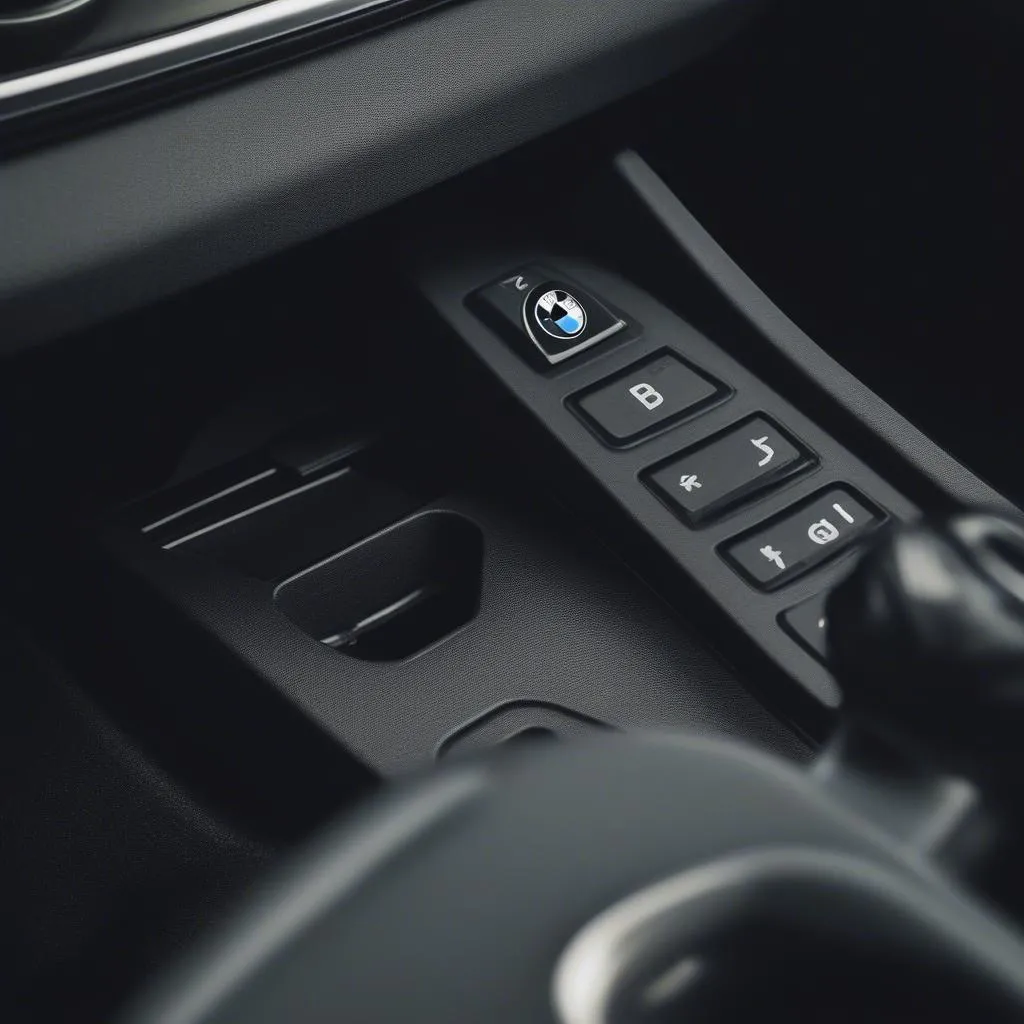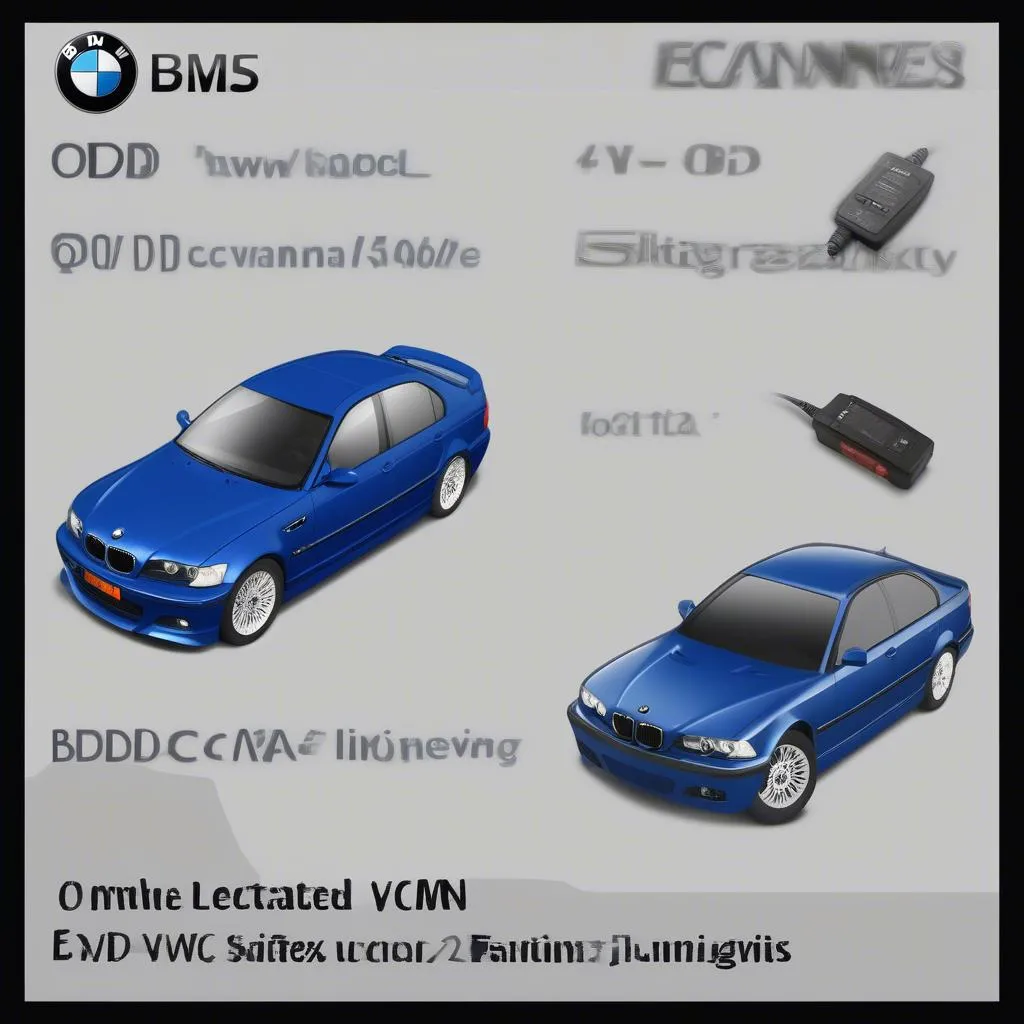Have you ever encountered a strange issue with your BMW E46 and wished you could diagnose it yourself? Maybe a warning light popped up on your dashboard, or your engine started running rough. While a trip to the dealership might seem like the only option, armed with the right knowledge, you can often troubleshoot these problems on your own. And that’s where OBD codes come into play.
Understanding OBD Codes: A Deeper Dive
OBD, short for On-Board Diagnostics, is a standardized system used in modern cars to monitor various engine and vehicle systems. When something goes wrong, the vehicle’s computer stores a fault code, known as an OBD code. These codes offer a valuable glimpse into what’s happening under the hood, allowing you to understand the issue and potentially fix it yourself.
The Importance of Bmw E46 Obd Codes
Think of OBD codes as the car’s language, communicating its health status. Each code represents a specific issue, and understanding them is crucial for any DIY mechanic. For example, a common code like P0171 indicates a problem with the fuel trim system, potentially pointing towards a faulty oxygen sensor or fuel injectors.
Decoding the Mysteries: How to Read OBD Codes
To access these hidden messages, you’ll need an OBD scanner. Many options are available, from basic scanners that read codes to more advanced ones that allow you to analyze data and even clear codes. For European cars like the BMW E46, it’s important to choose a scanner compatible with the vehicle’s diagnostic protocols. Some popular options include:
- Dealer Scanners: These are typically used by authorized dealerships and provide the most comprehensive diagnostic information.
- Generic OBD Scanners: These are widely available and can read basic codes.
Once you have an OBD scanner, connecting it to your BMW E46’s OBD port is a simple process. The port is usually located under the dashboard, near the steering column.
 bmw e46 obd port
bmw e46 obd port
Exploring Common Bmw E46 Obd Codes
Now that you have a basic understanding of OBD codes, let’s explore some common codes you might encounter with your BMW E46.
## Common Bmw E46 Obd Codes
- P0171: This code signals a fuel trim system issue, often pointing towards a faulty oxygen sensor or fuel injectors.
- P0300: A P0300 code indicates a random misfire detected in your engine, a potential symptom of ignition problems, fuel delivery issues, or worn spark plugs.
- P0420: This code points to a problem with your catalytic converter. It might indicate a damaged converter or issues with the exhaust system.
- P0500: A P0500 code suggests a problem with your vehicle speed sensor, potentially leading to inaccurate speed readings or problems with traction control.
Finding the Right Solution
Once you know the OBD code, you can research the specific issue using online resources or repair manuals. There are also numerous websites and forums dedicated to BMW E46 owners where you can find valuable information and connect with fellow enthusiasts.
## Additional Resources
- BMW E46 OBD Codes: https://techcarusa.com/bmw-e46-obd-codes/
- BMW E46 OBD Port Location: https://techcarusa.com/bmw-e46-obd-port-location/
- BMW E46 OBD Port: https://techcarusa.com/bmw-e46-obd-port/
 bmw e46 obd scanner
bmw e46 obd scanner
## Tips for DIY Troubleshooting
- Research Before You Repair: Before attempting any repairs, gather information about the specific code and the potential causes.
- Don’t Jump to Conclusions: Avoid making assumptions about the issue without proper diagnosis.
- Seek Expert Help: If you’re unsure about any part of the repair process, consult a qualified mechanic.
## Final Thoughts
Understanding and interpreting BMW E46 OBD codes can empower you to diagnose common issues with your vehicle. Remember, always prioritize safety and consult a qualified mechanic for any complex repairs.
Do you have any questions about BMW E46 OBD codes? Leave a comment below, and we’ll be happy to help!
Don’t forget, we’re here to support your DIY journey. If you need help with any automotive diagnostics, feel free to contact us on Whatsapp: +84767531508. We have experienced automotive technicians available 24/7 to assist you with all your questions!